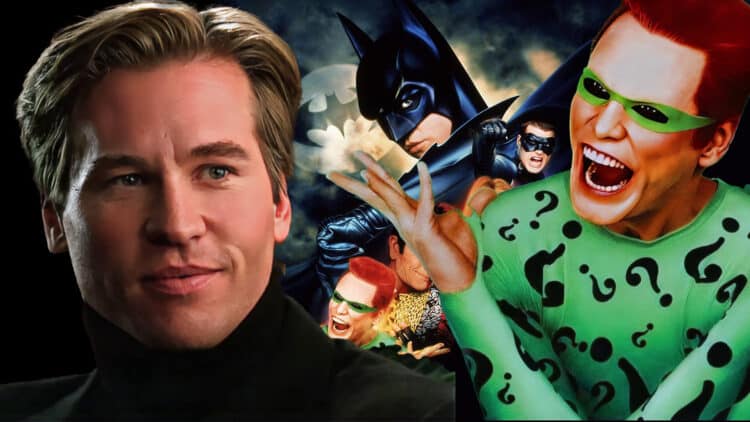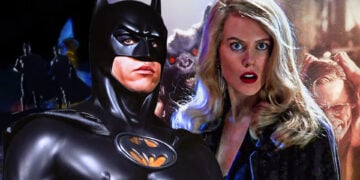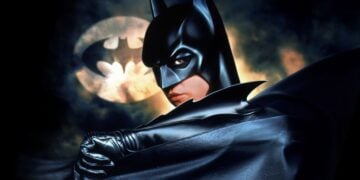Released in 1995, Batman Forever touched the hearts of the world because of Seal. There, I said it. The movie is beloved because of Seal’s “Kiss from a Rose” and how it’s the only song worth singing in a shower while the shampoo bottle suffers through the aural massacre of the chorus. For many comic book movie fans, Batman Forever is seen as the beginning of the end for this version of the Caped Crusader introduced in Tim Burton’s Burtonverse. It isn’t at a Batman & Robin-level of terrible, but is it on anyone’s best Batman movie of all time list? Unlikely.
Yet, here’s the thing: Rewatching Batman Forever today makes me realize something important. It’s the quintessential compromise between the studio, Warner Bros., and what fans want from a Dark Knight movie. Call it the perfect merger between entertainment and commercial viability. Before someone accuses me of hitting the pub’s happy hour during working hours (it was 16:15, okay?), hear me out for a second: Batman Forever isn’t… bad?!
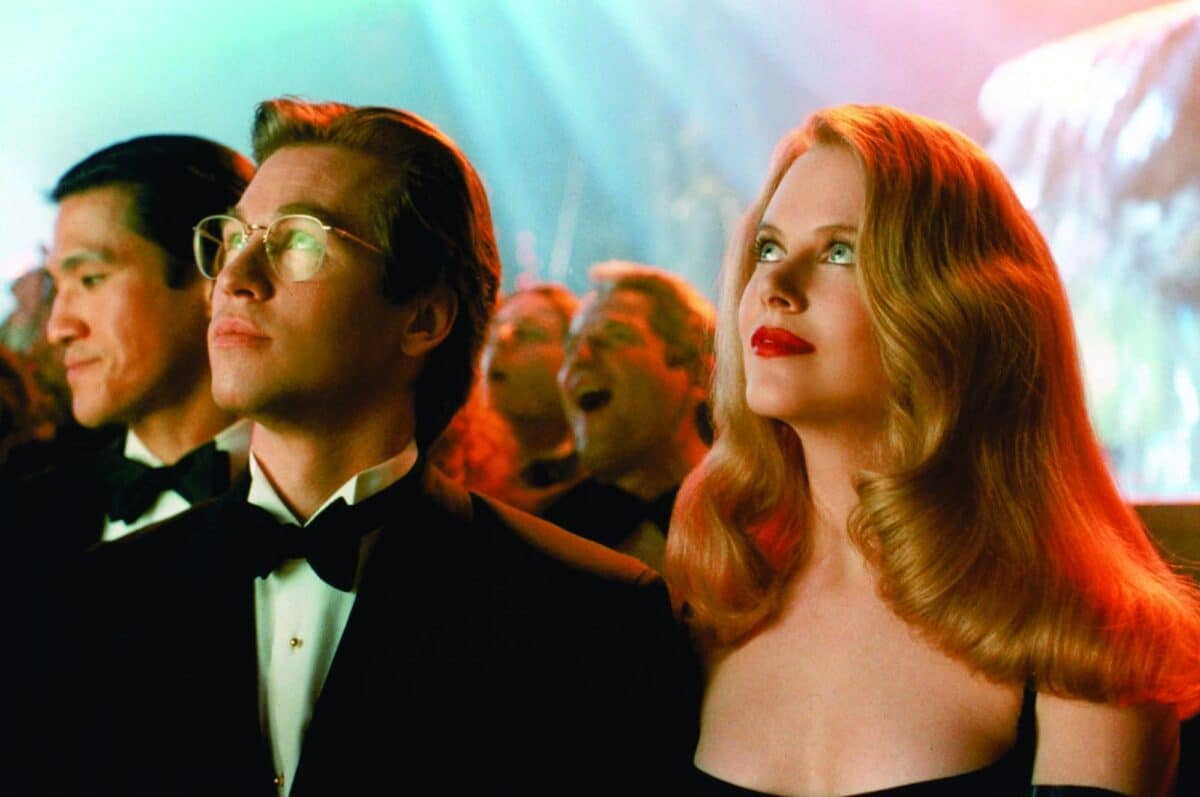
First off, let’s discuss Val Kilmer’s Batman. For Batman co-creator Bob Kane, Kilmer was the actor whom he believed embodied exactly what Bruce Wayne/Batman should be in a live-action movie. He not only gave him his stamp of approval, but he also thought that Kilmer captured the duality of the character better than Michael Keaton. It might sound sacrilegious to even say it, but there’s an element of truth to what Kane says, especially if people are looking at the source material for comparisons.
Rewatching the film now, it’s evident that Kilmer studied how to split the personalities and play them differently on screen. In fact, his portrayal shares more in common with Christian Bale’s Dark Knight than it does Keaton’s. He understands this is a man grappling with the literal and figurative masks he wears, trying to discover who he is underneath it all. If Kilmer’s Batman had been in a more critically acclaimed movie, chances are that everyone would be talking about him as one of the best to have played the role rather than just another name.
The separation between Kilmer’s Bat and Keaton’s is clearly something that Warner Bros. aimed for from the get-go. While canonically it’s meant to be the same version of the character, the studio wanted to move past the dark vibes of Batman Returns for something more family friendly in Batman Forever. The film achieves this through its cartoonish action and colorful demeanor. Even when there are moments of seriousness in the movie, they come off as goofy and over the top to assure the audience it isn’t too dangerous. Take the Riddler and Two-Face as prime examples. Their goal of controlling the mind through the airwaves sounds like something out of Batman ’66, being almost too outlandish to succeed but still harboring enough menace to make the viewer wonder what would happen if they did achieve it.
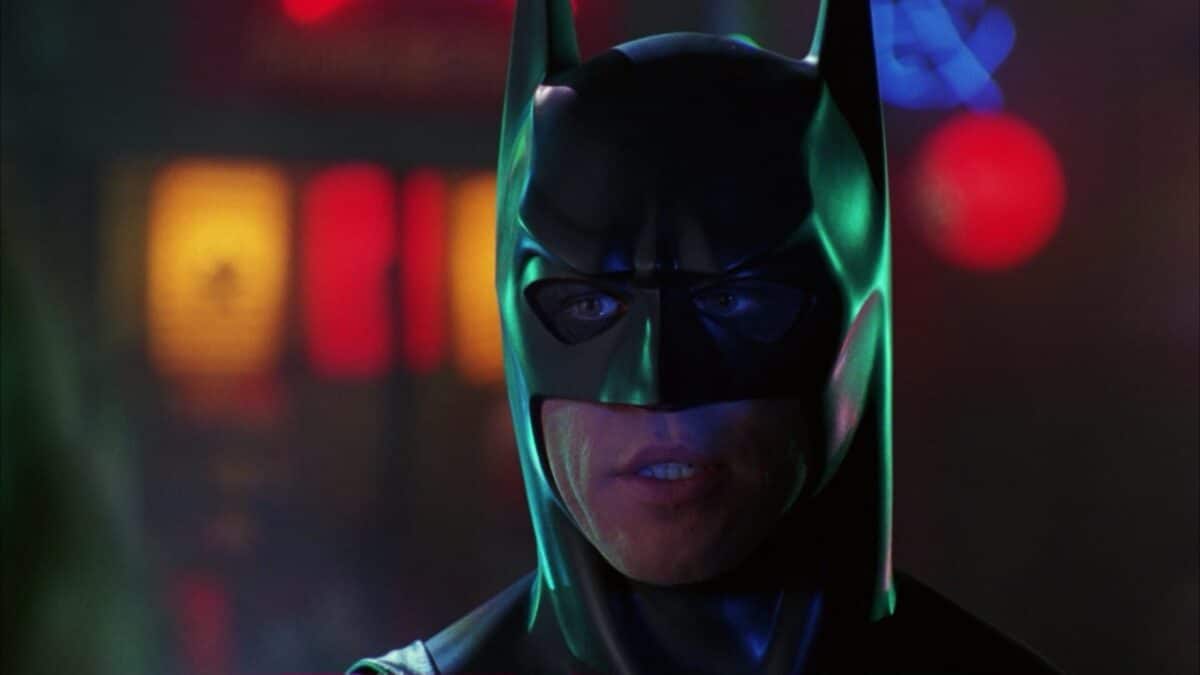
Unquestionably, Batman Forever plays it safe, never doing anything to offend or complicate the story. You know who else does that? The Marvel Cinematic Universe. In many ways, Batman Forever is an MCU movie before the MCU. It reshuffles and reappropriates canon to create the film it wants, but also leaves enough space for future narrative threads to be unraveled. In fact, the movie ends in such a manner that a sequel is inevitable rather than just a possibility. Look at how it handles the Riddler, who is shown to still be alive and in Arkham Asylum. There’s no questioning his status here and this is a definitive hint he may have returned later on.
For Warner Bros., one of its chief concerns about Batman Forever was merchandising opportunities. It wanted a film that could sell toys, clothing, and video games to both kids and adults. Unlike Batman Returns, with its Count Orlok-inspired Penguin and dominatrix-styled Catwoman, every character and vehicle in Batman Forever translated well into other mediums. The studio won here, as even the Tim Flattery designed Batmobile remains in demand today because of how striking it appears. Fans win, too, as they receive more cool stuff to put on their mantle pieces rather than the barest of merch possibilities.
Maybe Batman Forever might not be the best superhero film of all time. Then again, neither does that honor belong to anything the MCU produced. However, it’s a perfectly serviceable film that satisfies both the fans and studio’s greater interests. Sign me up for the Joel Schumacher cut of the film because that’s something I can get behind immediately.
Tell us, do you think Batman Forever is an underrated film? Let us know in the comments.
Batman Forever |
|---|
Batman must battle former district attorney Harvey Dent, who is now Two-Face and Edward Nygma, The Riddler with help from an amorous psychologist and a young circus acrobat who becomes his sidekick, Robin. |
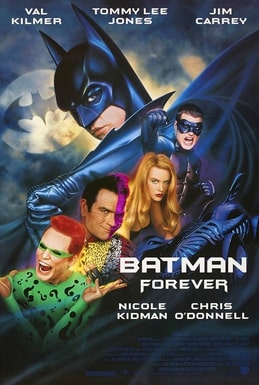 |
|---|
| Studio: Warner Bros. |
| Running Time: 122 minutes |
| Release Date: June 16, 1995 |
| Cast: Val Kilmer, Tommy Lee Jones, Jim Carrey, Nicole Kidman, Chris O'Donnell, Michael Gough |
| Director: Joel Schumacher |
| Writers: Bob Kane, Lee Batchler, Janet Scott Batchler |
| Genre: Action, Adventure, Superhero |
| Box Office: $336.6 million |


